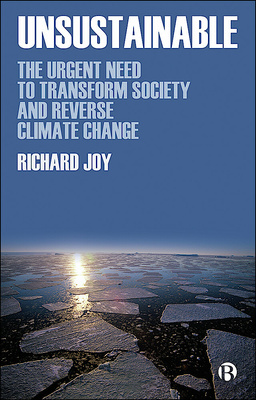The first stage of the COVID-19 Inquiry concluded at the end of 2023. I only watched snippets but the bits that I saw left me with my jaw around my ankles.
During the height of the pandemic, it often felt as though the government was struggling to get a grip on the situation but the Inquiry revealed the true extent of confusion in Downing Street. This was exemplified by Boris Johnson’s admission that: “We should have twigged much earlier”. If it wasn’t so serious, it would almost be funny.
The following morning, ITV News interviewed a guest who attempted to defend Boris by saying: “Maybe if someone had impressed upon him the seriousness of the situation…”. While it would be unfair to expect any prime minister to have detailed scientific knowledge on an issue such as a global pandemic, it does raise concerns if the seriousness of the situation had passed him by.
However, far from being a comic spectacle, we are watching one of the greatest tragedies of our time, not just because around 250,000 people died in the UK, but because this holds a mirror to the response by the international community to the climate crisis.
Listening to the explanations, you might have thought that there was some ambiguity about the potential risk of a pandemic but actually, the warnings were clear. In December 2019, China reported the outbreak of what was initially thought to be a deadly form of pneumonia. The World Health Organization (WHO) was formally notified on 31 December 2019. At the end of January 2020, it declared that the outbreak “constitutes a Public Health Emergency of International Concern (PHEIC)”. The warning was quite clear.
During early 2020, the number of infections from COVID-19 doubled approximately every three weeks and the death rate was initially about one to two per cent (although in February 2020, in the epicentre of the epidemic in China, it was 12 per cent). The data showed that we faced an epidemic that was rapidly doubling, with a serious risk of death. It was clear that urgent action was required. China responded by imposing an immediate lockdown. As a result, the number of COVID-19 deaths in China (as reported by the WHO on 30 November 2023) was half the number of deaths in the UK, although the former’s population is twenty times greater.
During the first couple of months of 2020, politicians faced a difficult choice between taking radical action to prevent the spread of the disease or delaying action to avoid damaging the economy. The evidence given at the Inquiry shows that the scientists had been advising early action, but instead, ministers decided to prioritise the economy.
We have a similar situation with climate change. We know that we could take action to slow the rate of global warming, but this would have consequences for our economies. The difference is that climate change carries the risk of passing the tipping point, whereas the nature of a pandemic, however terrible while it lasts, is that it eventually passes. There is a natural pattern to a pandemic that sees a period when deaths increase, then peak and eventually decline as herd immunity and other factors come into effect. Human civilisation recovers from such pandemics and life eventually returns to some form of normality. Unfortunately, this will not be the case with climate change. Once global temperatures pass the tipping point, life on Earth will be fundamentally changed for millennia.
Boris Johnson’s decision to hold the COVID-19 Inquiry is to be commended. Hopefully, lessons will be learned and the quality of government decision making will dramatically improve. At the risk of pre-empting the findings of the COVID-19 Inquiry, here are my top three recommendations:
- Governments should build disaster management capabilities that can rapidly assess risks and model alternative scenarios.
- The results of such analysis should be presented in a format that even the most scientifically illiterate government minister can understand.
- The evidence and implications of such analysis should be made publicly available and presented by experts with the relevant expertise.
If we fail to develop the capability to take urgent and effective action to address imminent threats, then we may see a similar inquiry play out 20 years from now: “I refer the Prime Minister to the data on the rapid rate of carbon emissions, escalating levels of atmospheric methane and the projected rise in global temperatures.” Pause. “Oh, that data. Maybe we should have twigged much earlier…”.
Richard Joy is an expert in organizational transformation and strategic change and has been actively involved in environmental politics for many years.
 Unsustainable by Richard Joy is available here for £19.99 on the Bristol University Press website.
Unsustainable by Richard Joy is available here for £19.99 on the Bristol University Press website.
Bristol University Press/Policy Press newsletter subscribers receive a 25% discount – sign up here.
Follow Transforming Society so we can let you know when new articles publish.
The views and opinions expressed on this blog site are solely those of the original blog post authors and other contributors. These views and opinions do not necessarily represent those of the Bristol University Press and/or any/all contributors to this site.
Image credit: William Gibson on Unsplash


